Are you planning to hatch eggs to grow your flock or just add a few more birds? Using an incubator is the simplest way to hatch eggs, but if you have a hen that wants to sit on eggs, you can use her too.
Chicken eggs need 21 days to hatch if you keep them at 99.5 degrees F or 37.5 degrees C. For the first 18 days, turn them 3-5 times every day and keep the humidity between 40 to 50%. For the final 3 days, don’t turn them at all, and raise the humidity to 65 to 75%.
I’ll show you how to hatch eggs using a hen that wants to sit on them. So stay tuned! But before that, I encourage you to read this article about how roosters fertilize eggs which will surely help you if you have roosters in your backyard.
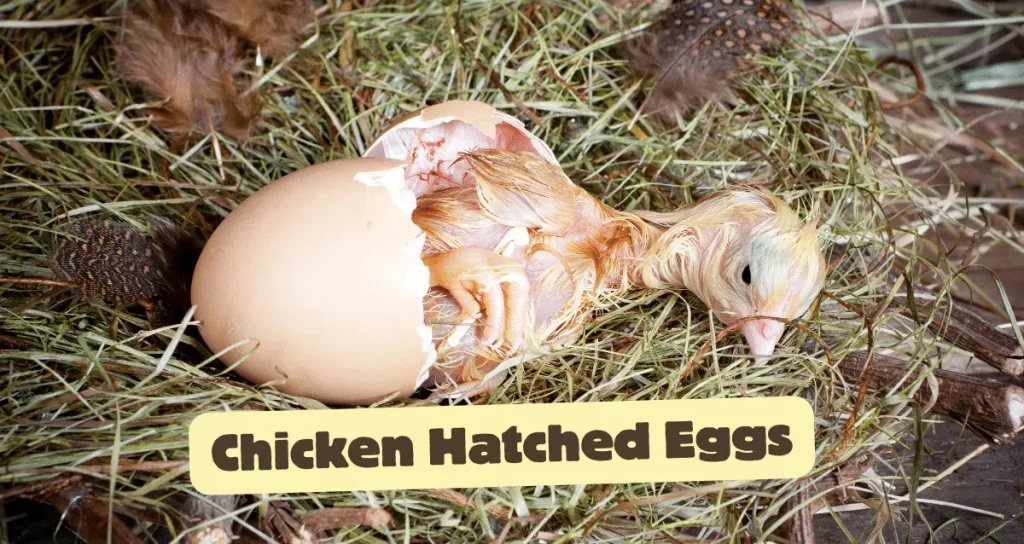
What To Choose: Using An Incubator Or A Broody Hen To Hatch Chicken Eggs
A hen only sits on eggs to hatch them when she feels broody, meaning her body gets warmer for a while because of hormones. Not every chicken will do this; only the broody ones will.
Even with a broody hen, you might not get as many chicks as you hope. Many eggs might not hatch, or sometimes the hen might stop sitting on them before they hatch, ruining the eggs.
If you just want to keep your chicken numbers steady and you have a hen that’s good at being a mom, using her might work. But if you’re spending money to buy special eggs to hatch, it’s probably better to use an incubator. It’s a safer bet for your money.
What Is The Best Incubator To Hatch Chicken Eggs?
Incubators are categorized into three types. Fully automatic, mostly automatic, and manual are the three types.
- Manual 10 or 30 egg incubator
- Automatic 7, 24, or 56 Egg Incubator with Temperature Control and Automatic Egg Turning (manual humidity)
- Fully Automatic 24 or 56 Egg Incubator with Temperature Control, Automatic Egg Turning, and Humidity Control
Hatching Rate Of Fertile Chicken Eggs
Usually, about 75 to 90% of eggs can hatch, but this can change based on the type of chicken and how the eggs were taken care of before being put in the incubator. When you hatch eggs at home, remember you’re likely to get an even mix of girl and boy chickens, so think about what you’ll do with the extra boys ahead of time.
How To Get Fertile Chicken Eggs?
If you’re new to chickens and want to hatch eggs, you need eggs that can turn into chicks. You can buy these eggs from big hatcheries that will send them by mail. These eggs often come from common chicken types and cost about the same as baby chicks you can buy.
A better place to find special eggs might be from smaller breeders or people who have chickens for fun and sell eggs from unique or rare chicken types. They care about things like the color of the eggs and the chicken’s personality.
Surprisingly, Etsy is a good place to look for these eggs, and they’re usually cheaper than the big hatcheries. These sellers are small, but people like what they sell, and they have more interesting chicken types than you’ll find elsewhere.
If you have got chickens and a rooster at your home, you would not need to purchase eggs. Make sure your rooster is doing his job well, especially since calm chicken types like silkies might not always make eggs that can hatch.
One active rooster should be kept per 6-8 hens. Use eggs that were laid recently, and haven’t been washed or put in the fridge, and keep them at room temperature for up to a week until you’re ready to hatch them.
You can also put them in an incubator right away if you have enough. Another option is to get eggs from a neighbor or friend who has chickens and a rooster.
Keeping Eggs Before Hatching
If you can’t start hatching the eggs the same day you get them from the chickens, it’s okay to store them for a little while, about 10 to 12 days, but you have to keep them in the right conditions.
You need to leave the eggs dirty and keep them in a cool place where it’s about 50 to 60 degrees F (10 to 15 C) with the humidity between 60 to 75%. A cool spot like a closet that doesn’t get warm, a mudroom or a basement can be good.
This setup is like what happens naturally in a nest when the hen is getting ready to hatch her eggs.
Hens lay one egg a day and wait until they have enough before they start keeping them warm so they all hatch together, just like in an incubator.
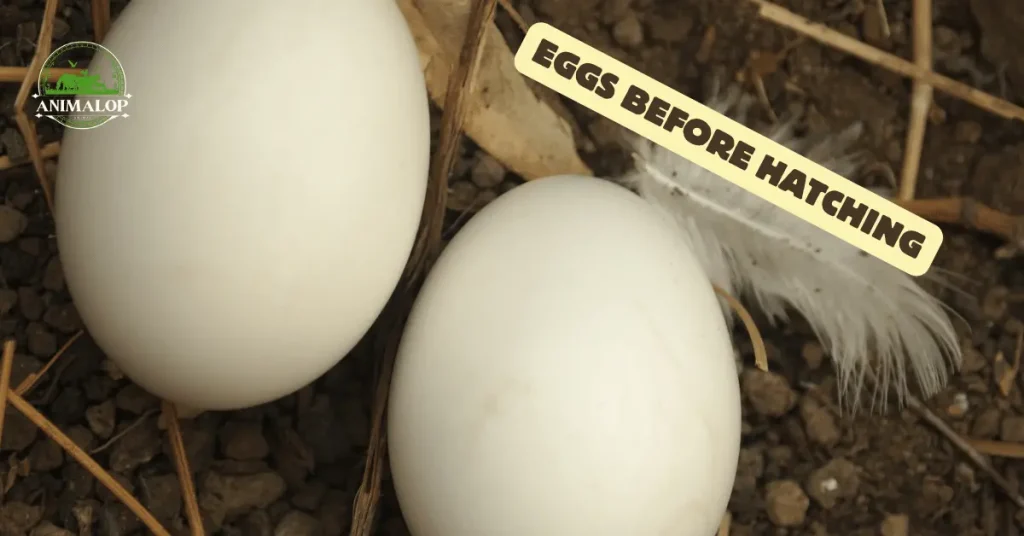
Put the eggs down with the sharp end facing down. This stops the yolk from sticking to the inside of the shell, which could stop the egg from hatching.
Make sure to pick up the eggs soon after they’re laid so they don’t get damaged, and don’t wash them.
Eggs have a protective layer on them, and if you wash them, they might not hatch. Put the eggs in the incubator after they have warmed up a little. If they go from cool to the incubator’s 99.5 degrees too fast, it could hurt them.
Find out what is sour crops in chickens.
Stages Of Chicken Egg Hatching: The Complete Process
When you hatch chicken eggs, it’s mainly about keeping the right warmth and dampness and making sure to turn the eggs often so the baby chicks inside grow properly.
The warmth needs to be at 99.5 degrees F (37.5 C). If it goes up or down even a little bit for a few hours, it could hurt the chick growing inside.
Most new incubators control the temperature well, so you don’t need to worry too much about it. The incubator should be kept closed as much as possible.
For the first 18 days, you want the air inside to be kinda damp, between 40 to 50% dampness. Then, in the last few days, you need to make it more damp, between 65 to 75%, to help the chicks stay wet and make the eggshell soft enough to break out of.
Normally, mother hens would wet their feathers to do this, but in an incubator, you just add water to a special spot for dampness. Some incubators check the dampness for you, and some let you watch it and add water when needed.
It’s also important for the eggs to get air because they need oxygen to grow. Most incubators have a little fan to help with this.
The eggs need to be moved around a lot to help the chick inside grow right and not stick to the shell. A mother hen would do this a lot, but in an incubator, you need to turn them 3 to 5 times a day.
It’s easier to get an incubator that turns the eggs for you, and it’s worth paying a bit more for this. Or, you can turn them yourself but don’t forget to do it.
How Long Does It Take For Chicken Eggs To Hatch
Chicken eggs usually need about 21 days to hatch once you put them in the incubator. Don’t count any days the eggs were stored before starting the incubation.
When incubating eggs, you can store them in a chilly spot for up to 10 days (but not in the fridge). But it’s best to incubate them immediately after they’ve been laid.
You should turn the eggs 3 to 5 times every day for the first 18 days. In the last 3 days, just leave them be.
Keep the warmth steady at 99.5 degrees F, and adjust the wetness in the air for the last few days. Over the first 18 days, you should have 40 to 50% moisture in the air; over the last three days, you should have 65 to 75% moisture.
After 21 days, the chicks should be ready to come out. It’s important not to help them hatch. They need to do it themselves to get stronger.
You’ll see the egg start to move as the chick inside works to break out. They’ll make a tiny hole to start breathing air. After making this hole, they might take a break for 6 to 12 hours to get used to breathing air, so if they don’t seem active, it’s usually okay.
Helping them out might seem nice, but it can actually hurt them, even if you’re really careful. So you ought to let them do their thing and hatch on their own.
How Long Should Chicks Stay in an Incubator After Hatching?
After chicks hatch, they should be kept in the incubator for about 12 to 24 hours so they can dry off and get fluffy. Right before they hatch, chicks get all the nutrients they need from the yolk inside the egg, so they don’t really need to eat or drink for the first 48 hours.
That’s why it’s okay to send baby chicks through the mail without food or water for a day.
But, you ought to take them out of the incubator by the time they are 48 hours old. Then, they need to go into a brooder (a warm, safe place for young chicks) where they can start drinking water and eating chick food.
Also, get to know when can chicks go outside.
Hatching Eggs Using A Broody Hen
The last way to hatch eggs is to let a hen who wants to be a mom do it. The hen needs to want to sit on the eggs (be broody) and be a good mom.
Many people think any chicken can hatch eggs at any time, but that’s not how it should be. A hen lays eggs most of the year, but she only wants to hatch them when she’s broody. This means her body gets warmer, perfect for keeping eggs warm, and she really wants to stay in her nest.
If you give a broody hen eggs, she will take great care of them, make a cozy nest, and move around to keep the eggs warm by turning them all day.
To help her out, give her a clean, quiet place to make her nest. Make sure she can get to food and water without going too far because she will still need to leave the nest now and then to eat, drink, and poop. If she’s not bothered, and she’s got a strong instinct to be a mom, she should do well on her own.
The Best Chicken Breeds for Hatching Eggs
Nowadays, many chicken breeds aren’t made to be broody, but there are still some old-timey breeds that are great at being moms. They include:

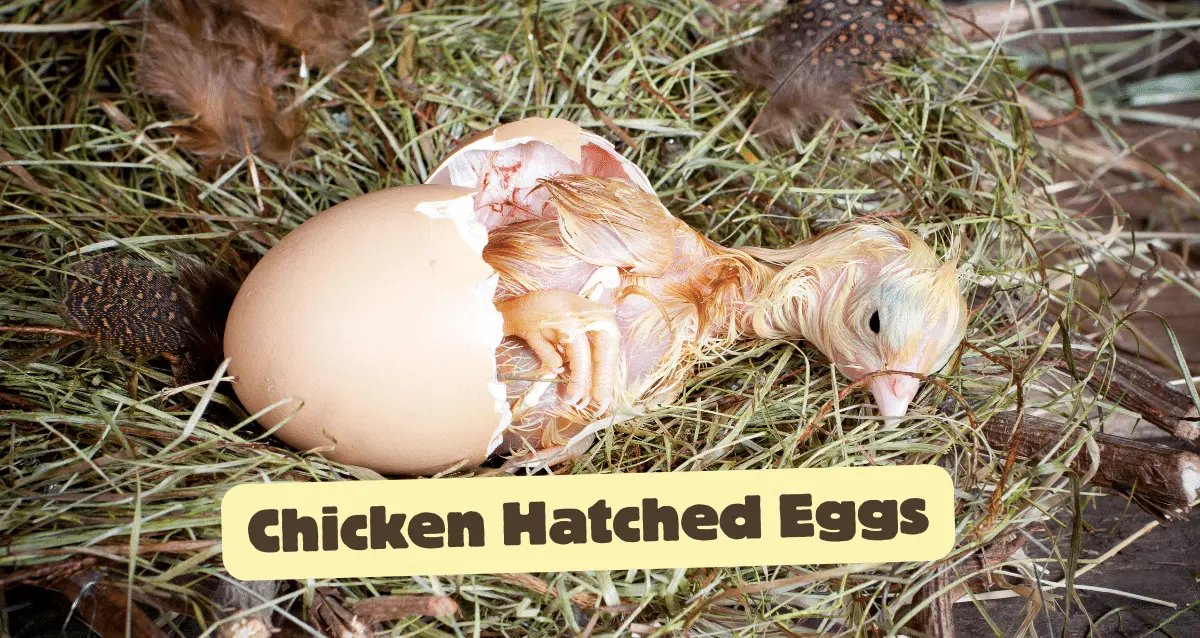
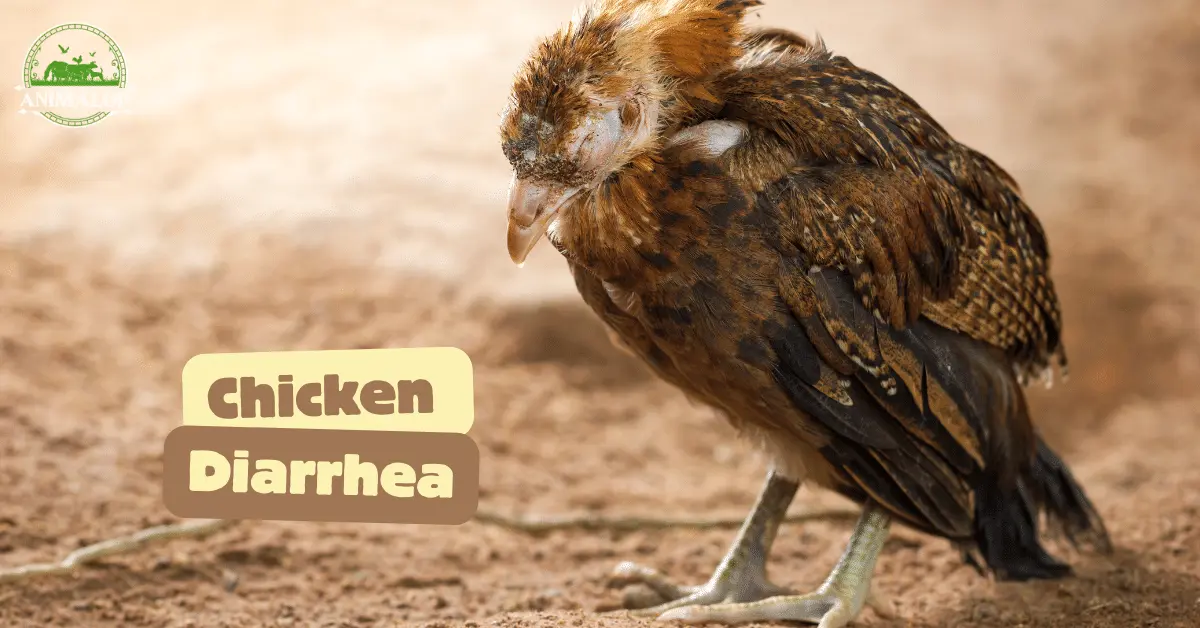
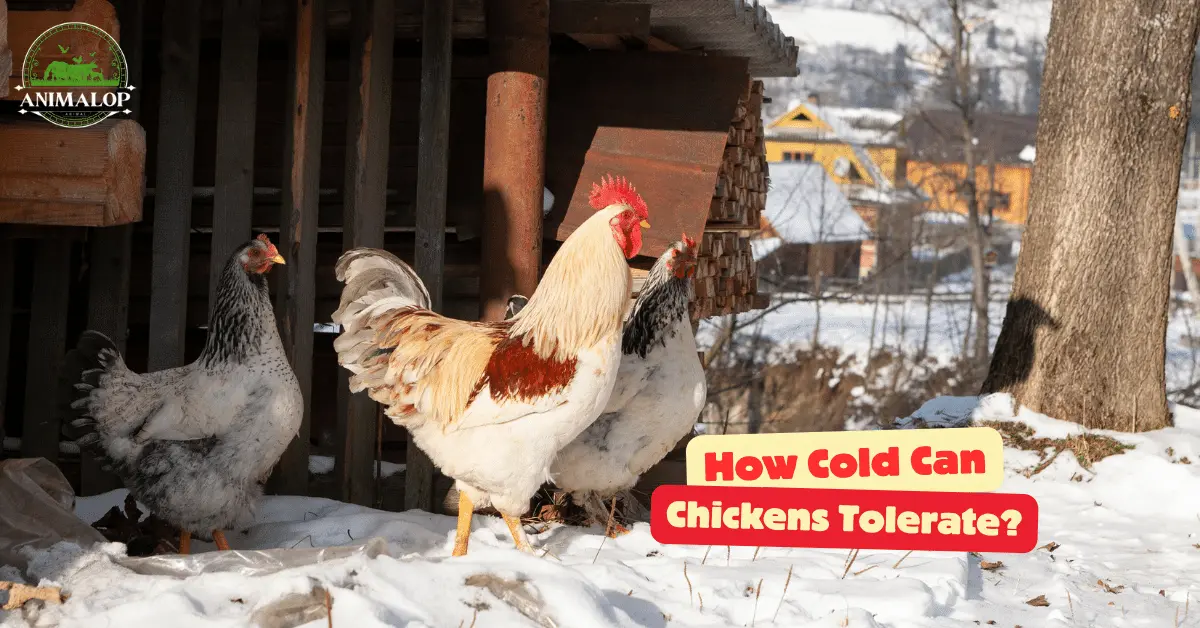
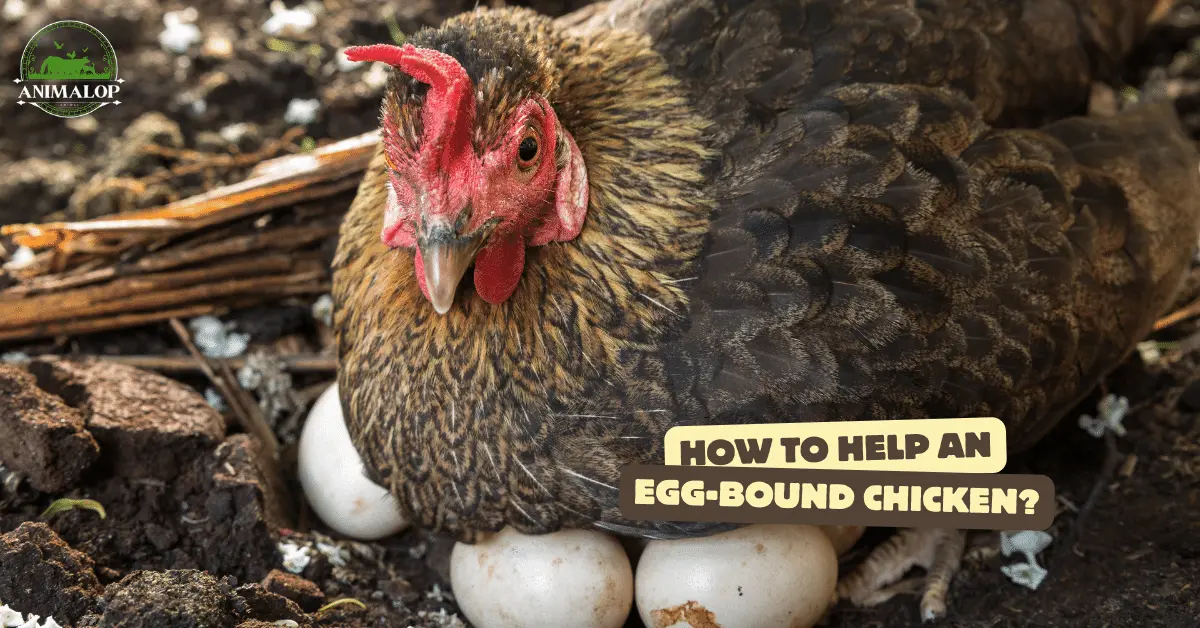
One Comment on “Chicken Hatched Eggs: What Are The Stages?”